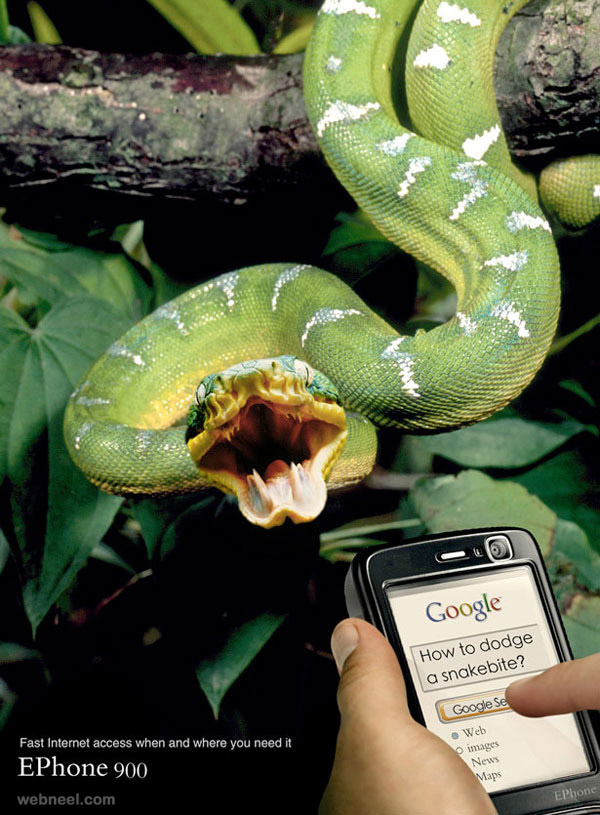Phone: "How to dodge a
snakebite." Caption: "Fast Internet access when and where you need
it. EPhone 900." Source: funnyneel.com
In the EPhone 900 advertisement, there is a picture of a
green snake that is opening its mouth, ready to strike any second. The humor of
the ad comes in once the audience, probably a group of consumers of the new EPhone
900, notices a random phone with the text "How to dodge a snakebite"
in the Google search bar. The way the picture of the snake is opening its mouth
threateningly makes the audience to panic while the way the hand is casually
pressing the Google Search button seem to slow the time down. This unique and
indirect juxtaposition, the idea of a snake in the wild being in the same
picture with a brand new technology, is the main element of the humor in which the
viewers could clearly see that the situation is too crazy to be true. Once the
ad captivates its audience with the little gag, it shows a caption that says
"Fast Internet access when and where you need it. EPhone 900." All of
a sudden, the funny message is clear: EPhone 900 allows the consumers to have an Internet access so fast that they
could look up how to dodge a snakebite even before the snake could strike. The
caption that mentions the EPhone 900 is very significant in the advertisement
because without it, the audience could easily make a mistake that ad is about
Google and how it might save someone from danger by giving quick survival information
or something. With that said, I believe that the ad is effective and attention
grabbing, but if there are some things that I'm a little discontented about is
that for an ad that is solely for a new product, it shows too much of the snake
but not enough of the EPhone 900. If the placement of the product and the snake
is somehow rearranged, the ad would be much better.


